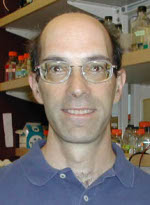非常抱歉,
你要访问的页面不存在,
非常抱歉,
你要访问的页面不存在,
非常抱歉,
你要访问的页面不存在,
验证码:

职称:Professor
所属学校:University of Washington-Seattle Campus
所属院系:Medical Genetics
所属专业:Medical Informatics
联系方式:(206) 616-4523
We are interested in developing biological assays to analyze the function of proteins, often using the yeast Saccharomyces cerevisiae as a model organism for assays that can be applied to proteins from any organism. Current studies include assays to analyze proteins, DNA, RNA and small molecules. The past decade has seen a profusion of genome sequences, with total DNA sequence accumulation of more than 100 billion bases. Genome sequences have led to the prediction of large complements of proteins. However, the determination of protein function remains a difficult task, given the range of biochemical activities that proteins display, the diverse modifications that a protein can undergo, the multiplicity of proteins potentially encoded by a single gene, and the use of proteins for more than a single function. Our laboratory is interested in developing biological technologies, especially those to analyze protein function. Often we useSaccharomyces cerevisiae (baker's yeast) as the host organism for carrying out protein assays. Yeast—the first eukaryote to be sequenced—has a small number of genes, is highly tractable for experimentation, has numerous sets of available reagents, and is well-established for the analysis of high-throughput data. As a consequence, the set of yeast proteins is particularly advantageous for testing new technologies. In addition, yeast is a convenient host to express proteins from many other organisms. In the past, we have also used S. cerevisiae to analyze proteins relevant to human disease. Studies have focused on a human polyglutamine-containing protein implicated in neurodegenerative disease, the human Toll-like receptors that mediate innate immunity, the proteins of the malaria parasite Plasmodium falciparum, and yeast proteins that play a role in aging.